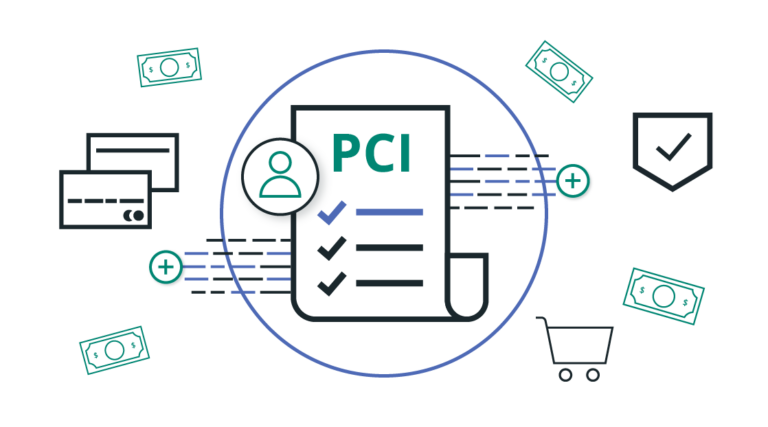AUTHOR : BABLI
DATE : 15/12/23
Introduction
Payment PCI Compliance, or Payment Card Industry Data Security Standard (PCI DSS) compliance, is a set of security standards designed to ensure that all companies that accept, process, store, or transmit credit card information maintain a secure environment. In a world where cyber threats loom large, understanding and implementing PCI compliance measures are crucial for businesses of all sizes.
Understanding PCI DSS
PCI DSS is not just an acronym but a robust framework comprising requirements for security management, policies, procedures, network architecture, software design, and other critical protective measures. Its primary goal is to protect sensitive cardholder data and secure the payment ecosystem.
Why PCI Compliance Matters
Protection against Data Breaches
Data breaches can wreak havoc on businesses, leading to financial losses and irreparable damage to reputation. PCI compliance acts as a shield, minimizing the risk of data breaches by enforcing stringent security measures.
Building Trust with Customers
In an era where consumers are increasingly cautious about sharing their financial information, businesses that demonstrate PCI compliance send a strong message of trustworthiness. Customers feel secure knowing their data is handled with the utmost care.
Steps to Achieve PCI Compliance

Conducting a Risk Assessment
Before diving into compliance measures, businesses [1]must conduct a thorough risk assessment. Identifying potential vulnerabilities[2] and understanding the risks specific to their operations lays the groundwork for effective compliance strategies.
Implementing Security Measures
From encrypting data during transmission [3]to maintaining secure access controls, implementing [4]PCI DSS requirements is a multifaceted process. It involves a combination of technological [5]solutions, employee training, and ongoing monitoring.
Common Challenges in Achieving PCI Compliance
Cost Implications
Investing in security measures can be perceived as a significant expense. However, the cost of non-compliance is far greater. This section explores cost-effective strategies for achieving and maintaining PCI compliance.
Complexity of Compliance Requirements
The complexity of PCI DSS requirements can be overwhelming for businesses. Breaking down the compliance process into manageable steps and seeking expert guidance can alleviate the challenges associated with complexity.
Interactive Quiz on PCI Compliance

Engaging Readers with a Quick Quiz on PCI Compliance
An interactive quiz not only engages readers but also reinforces key concepts[1]. This section includes a fun and informative quiz on PCI compliance[2], allowing readers to test their knowledge.
Explaining Correct Answers and Providing Additional Insights
For each quiz question, a brief explanation [4]enhances understanding.[3] This section goes beyond correct answers, providing additional insights to enrich the reader’s knowledge.[5]
Tips for Small Businesses
Simplified Steps for Small Businesses to Achieve PCI Compliance
Smaller businesses often face unique challenges. This section offers simplified steps and practical tips for small businesses to navigate the PCI compliance landscape without overwhelming resources.
Cost-Effective Compliance Strategies
Acknowledging the budget constraints of small businesses, this part provides cost-effective strategies for achieving and maintaining PCI compliance.
Future of PCI Compliance

Anticipated Changes in Compliance Standards
Predicting the future of PCI compliance involves examining emerging technologies, regulatory changes, and evolving cyber threats. This section provides insights into what the future holds for PCI DSS.
Emerging Technologies Influencing Compliance
From blockchain to biometrics, exploring how emerging technologies are likely to shape the future of PCI compliance adds a forward-looking perspective to the discussion.
Case Studies
Examples of Businesses Benefiting from PCI Compliance
Real-world examples illustrate the positive impact of PCI compliance on businesses. These case studies highlight success stories and demonstrate the tangible benefits of prioritizing security.
Lessons Learned from Non-Compliance Incidents
On the flip side, examining instances of non-compliance provides valuable lessons. Understanding the consequences of neglecting PCI DSS requirements reinforces the importance of adherence.
Conclusion
Summing up the multifaceted world of Payment PCI Compliance, this section emphasizes the critical role it plays in securing businesses and building trust with consumers. Achieving and maintaining PCI compliance is not just a regulatory requirement; it’s a strategic investment in the long-term success of any enterprise.
FAQs
- Is PCI compliance only for large businesses?
- No, PCI compliance is applicable to businesses of all sizes, with different levels tailored to transaction volumes.
- What repercussions arise from failing to adhere to PCI DSS regulations?
- Non-compliance can lead to hefty fines, legal action, and damage to the business’s reputation.
- How often should businesses update their PCI compliance measures?
- Regular updates are essential to adapt to evolving threats; businesses should monitor and update their security measures consistently.
- Are there affordable PCI compliance solutions for small businesses?
- Yes, there are cost-effective solutions tailored to the needs of small businesses.
- Can PCI compliance benefit businesses beyond meeting regulatory standards?
- Absolutely, businesses that prioritize PCI compliance often experience enhanced cybersecurity, improved reputation, and long-term cost savings.





